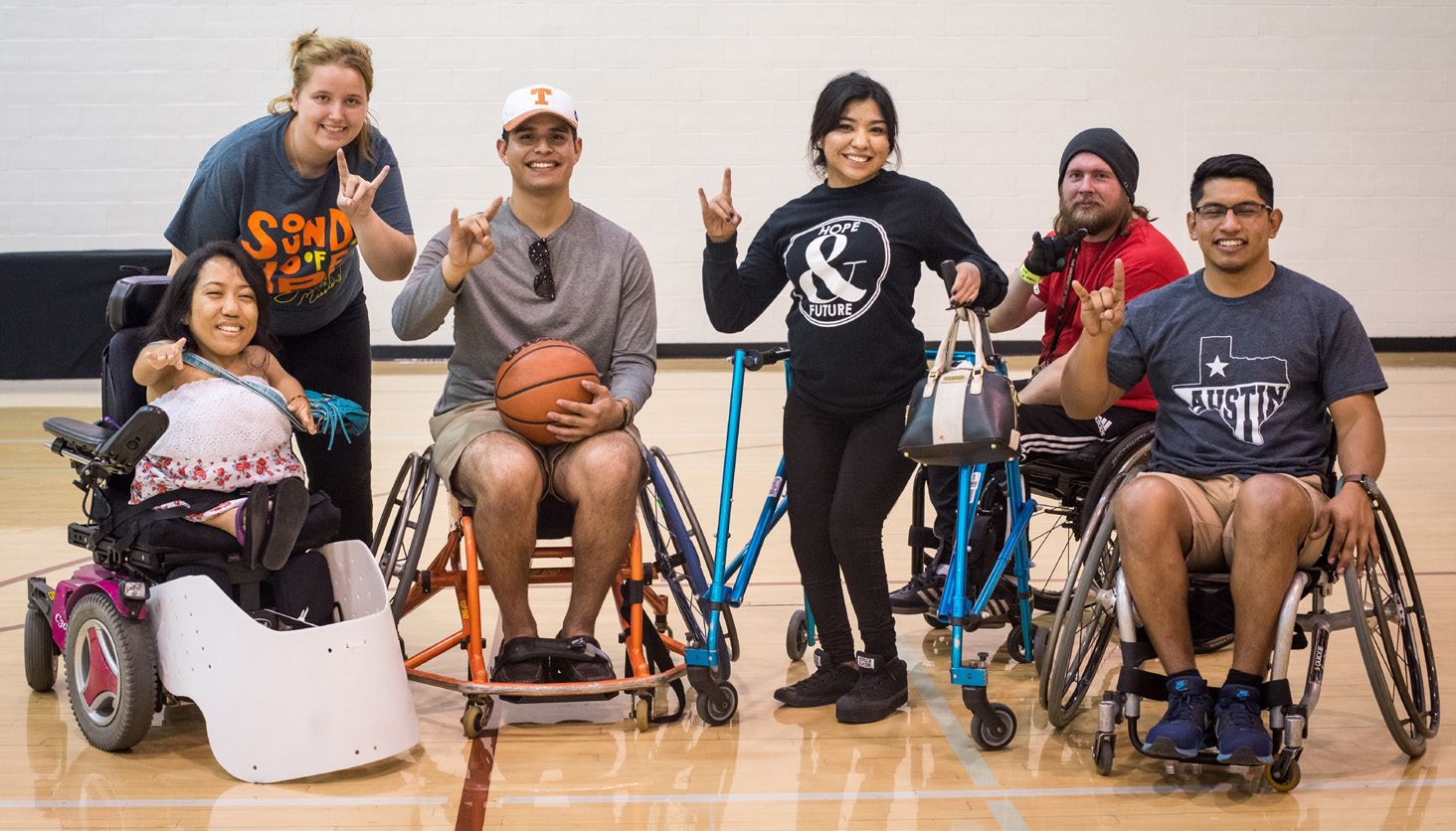The University of Texas at Austin’s (UT Austin) new Disability Cultural Center (DCC) builds community and connections for students with disabilities and pushes forward important cultural conversations as they relate to disability on campus and in society.
The DCC mirrors the work being done at other cultural centers on campus, such as the Multicultural Engagement Center and the Gender and Sexuality Center, by making disability and accessibility a larger part of diversity, equity, and inclusion efforts.
While UT Austin’s Disability and Access office focuses more on logistics, accommodations, and legal compliances, the DCC emphasizes strengthening relationships among individuals with disabilities and encouraging thought-provoking discussions focused on accessibility, civil rights, and identity. The center’s more informal approach is designed to help members of the campus community connect with each other.
“The DCC is a place where disability is normalized and celebrated on campus,” says Emily Shryock, director. “This is where students can find their community and be celebrated for who they are.”
Since its launch in January, the DCC has served as a nexus for virtual and in-person events and programming related to disability. These include monthly gatherings for students, faculty, and staff; study sessions with accessible seating and technology options; weekly advocacy sessions with the Coalition of Texans with Disabilities; and dialogues on disability identity and its impact on and role in society. The center also holds information sessions about other UT Austin programs, such as the critical disability studies minor, which focuses on social, cultural, and political contexts.
A recent key event was Disability Graduation, held on May 4, for students with disabilities and those graduating with a minor in critical disability studies. The ceremony featured a slideshow and speeches from graduates and faculty to honor those in attendance.
With a three-year funding commitment from UT Austin, the DCC’s next steps are to establish a physical space within the Student Services Building. Once that process is complete, the hope is that the center will serve as a social hub for campus community members with disabilities, says Shryock.
“[DCC] does provide that space for just the recognition of disability as more than a diagnosis or a legal status and really moves it into that realm of being recognized as an identity, recognized as a culture, and recognized as part of the diversity of the campus community,” she says.●
This article was published in our June 2023 issue.




















